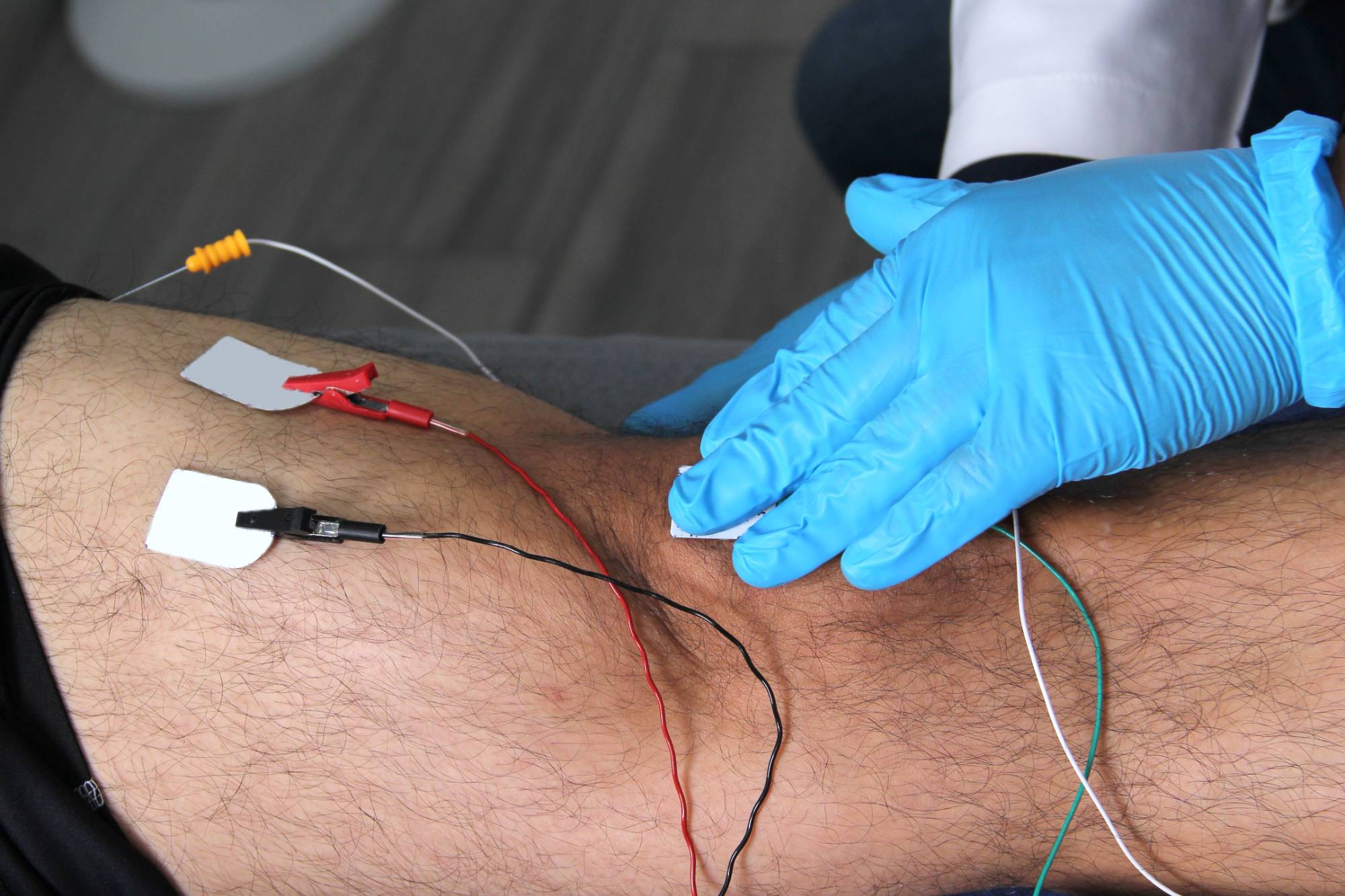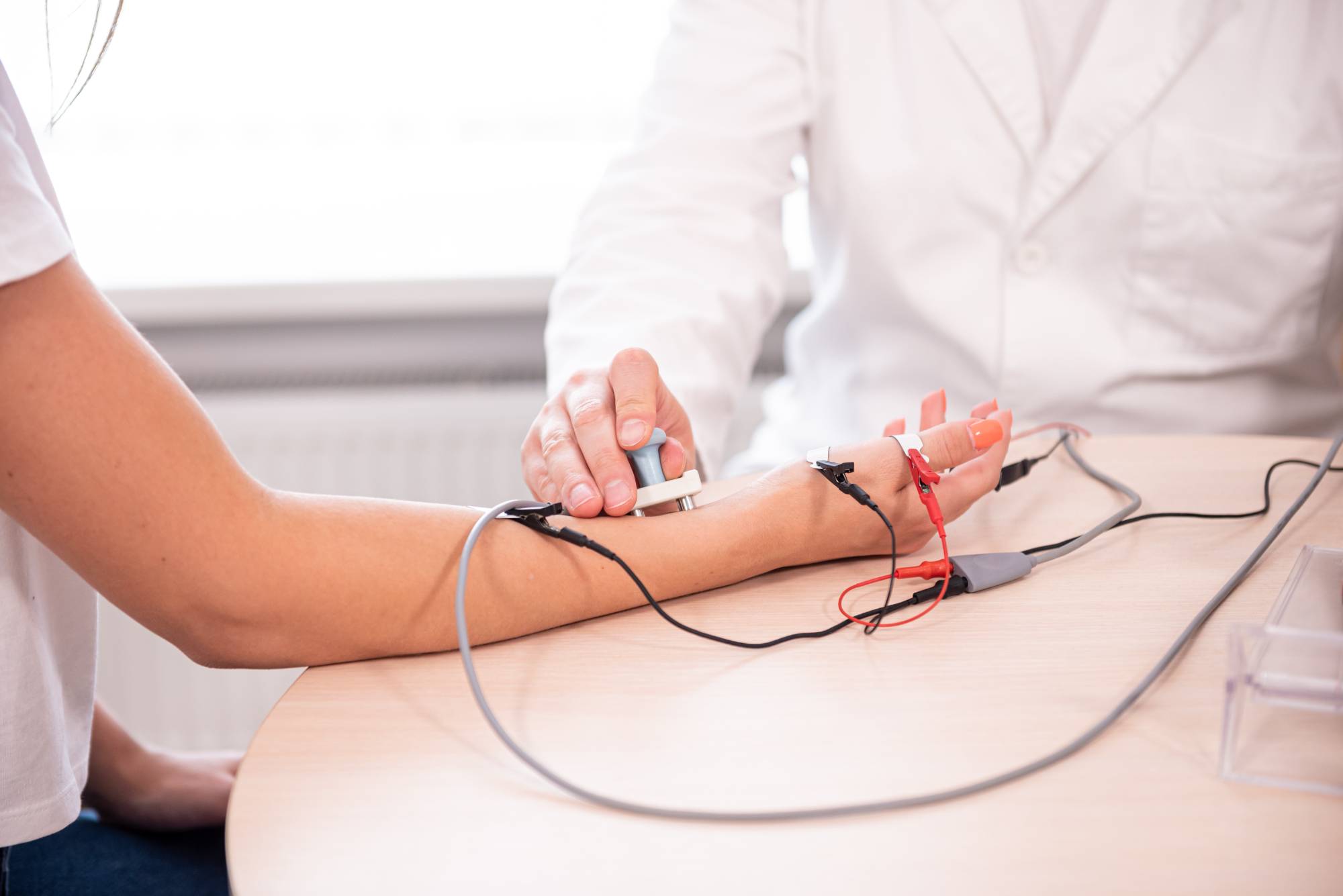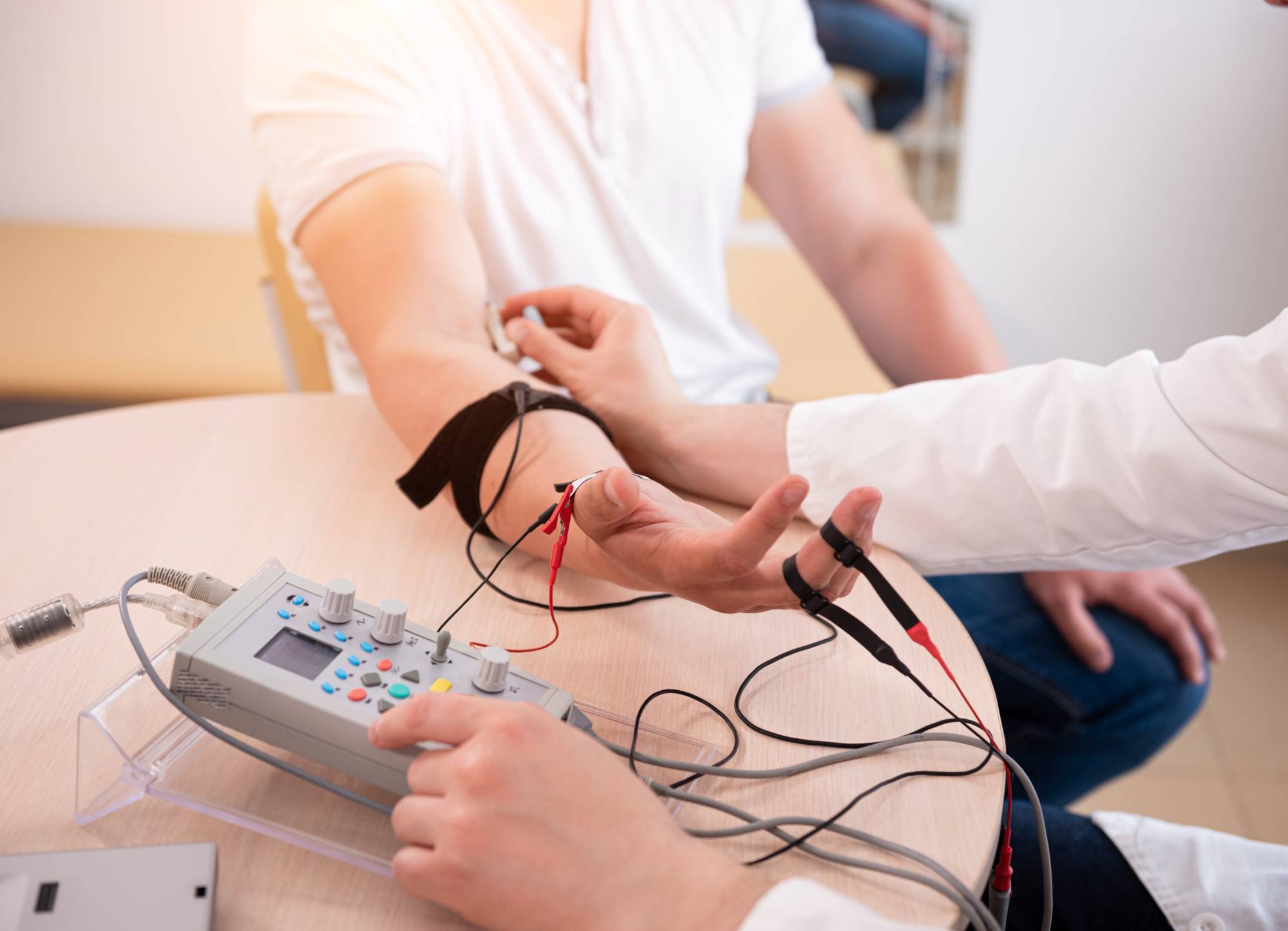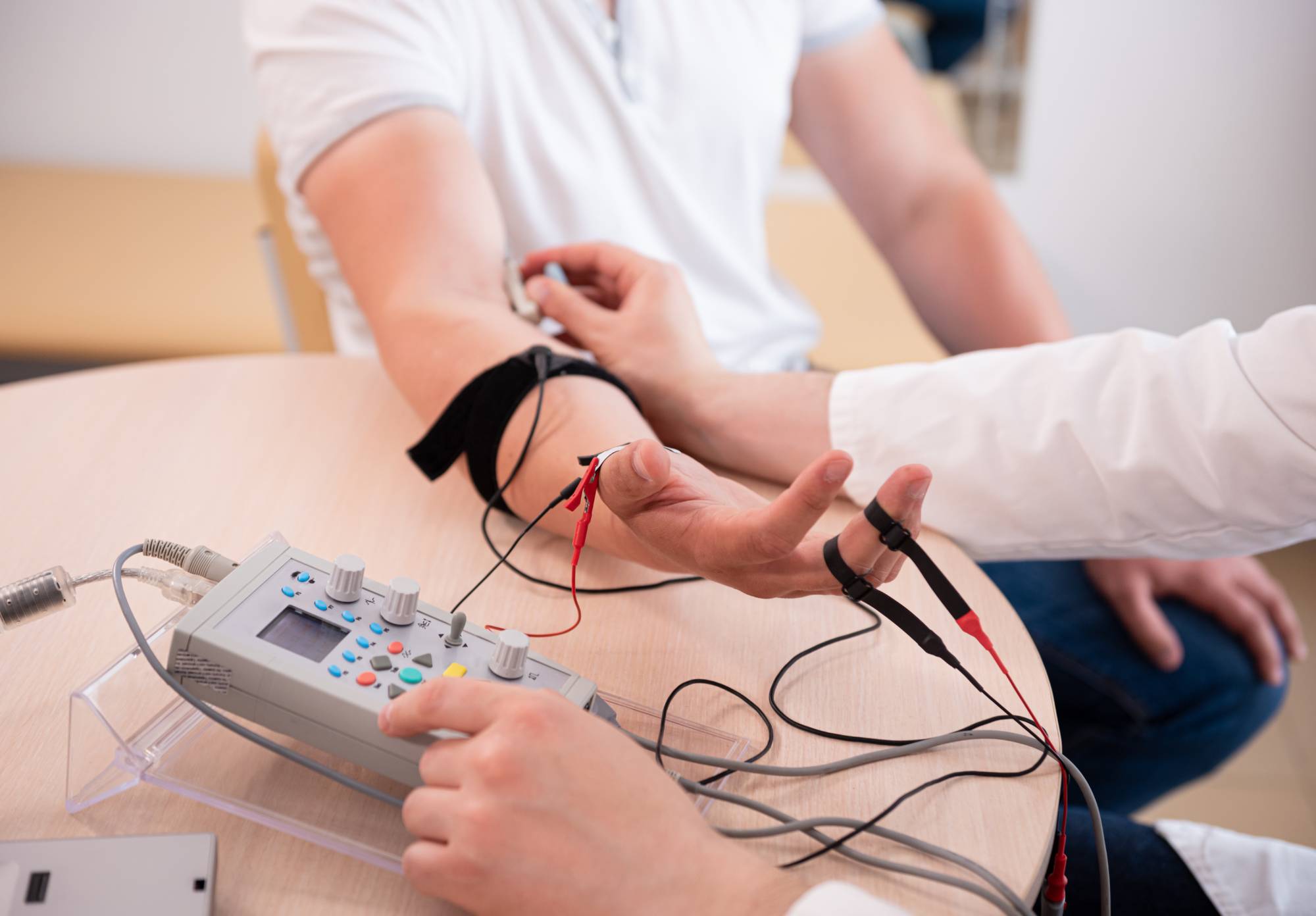Precise nerve and muscle testing that identifies exactly what’s causing your pain, weakness, or numbness.

Reviews

You’ve been dealing with unexplained symptoms long enough. Tingling in your hands that keeps you awake. Muscle weakness that makes simple tasks frustrating. Nerve pain that shoots down your leg without warning.
EMG testing gives you the objective answers you need. This diagnostic procedure measures the electrical activity in your muscles and nerves, pinpointing exactly where the problem exists and how severe it is.
Instead of guessing about treatments or trying medications that might not work, you’ll have clear data about what’s happening in your body. That means targeted treatment plans that actually address the root cause of your symptoms, not just mask them temporarily.
NY Spine Medicine has been serving Middle Village and the greater Queens community with specialized diagnostic testing and pain management services. Our board-certified physicians understand that unexplained neurological symptoms can be frightening and disruptive to your daily life.
We focus exclusively on spine and nerve-related conditions, which means you’re not just another patient in a general practice. You’re working with specialists who see cases like yours regularly and know how to interpret complex EMG results accurately.
Located conveniently in Middle Village, we provide comprehensive electromyography testing and nerve conduction studies using state-of-the-art equipment, ensuring you get precise diagnostic information close to home.

Your EMG testing appointment typically takes 30 to 60 minutes, depending on which nerves and muscles need evaluation. The procedure has two parts: nerve conduction studies and electromyography.
During the nerve conduction study, small electrodes are placed on your skin over the nerves being tested. Mild electrical pulses measure how quickly and effectively your nerves transmit signals. This part feels like small static shocks and helps identify nerve damage or compression.
The electromyography portion involves inserting very thin needle electrodes into specific muscles. These needles detect the electrical activity your muscles produce at rest and during contraction. While you might feel some discomfort, most patients tolerate the procedure well.
You’ll receive your results immediately after testing. We’ll explain what the findings mean, how they relate to your symptoms, and what treatment options are available based on the diagnostic data.

Ready to get started?
Your EMG testing includes both electromyography and nerve conduction studies, providing a complete picture of your neuromuscular function. The testing can diagnose conditions like carpal tunnel syndrome, sciatica, diabetic neuropathy, herniated disc complications, and various muscle disorders.
Most insurance plans cover EMG testing when medically necessary, and we handle prior authorization requirements when needed. You’ll receive detailed reports that can be shared with your referring physician or other specialists involved in your care.
Our diagnostic equipment meets the highest medical standards, ensuring accurate results that physicians can rely on for treatment planning. Same-day appointments are often available for patients experiencing acute symptoms or those who need urgent diagnostic clarification.

New York:
Florida:
Support